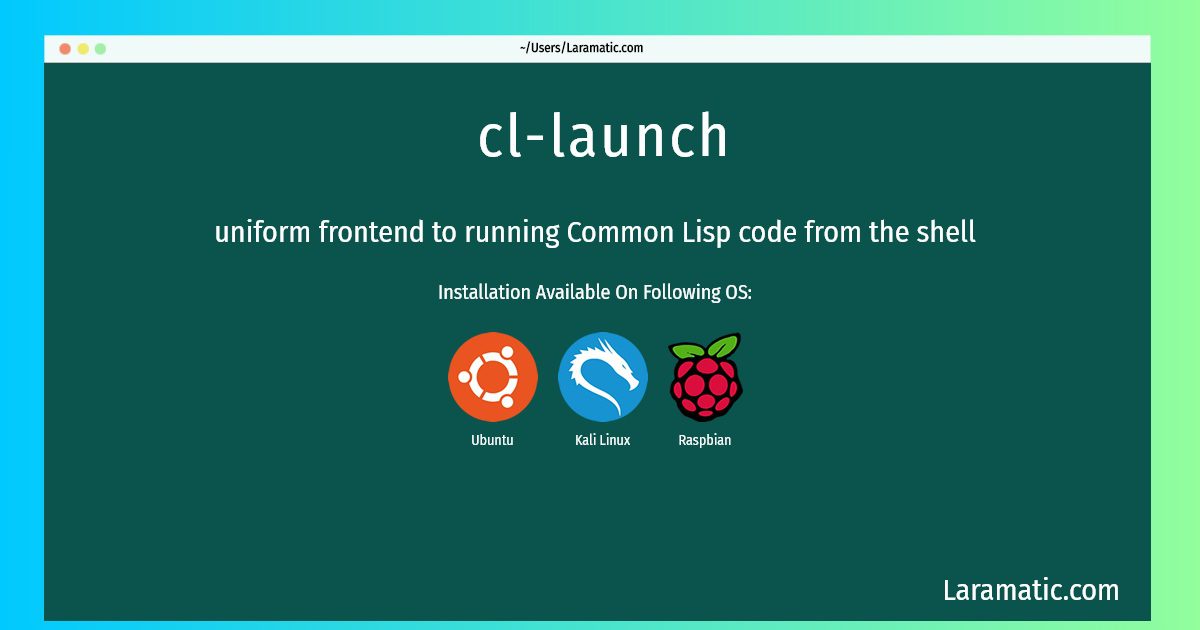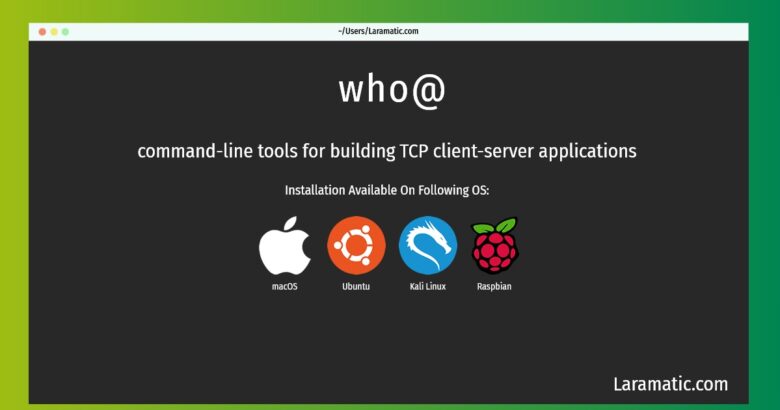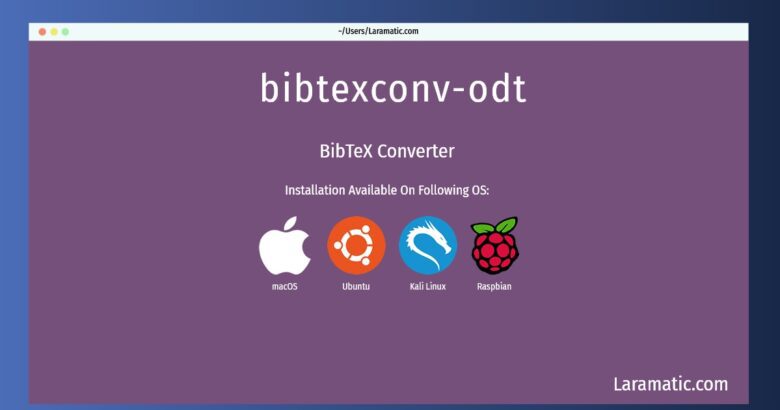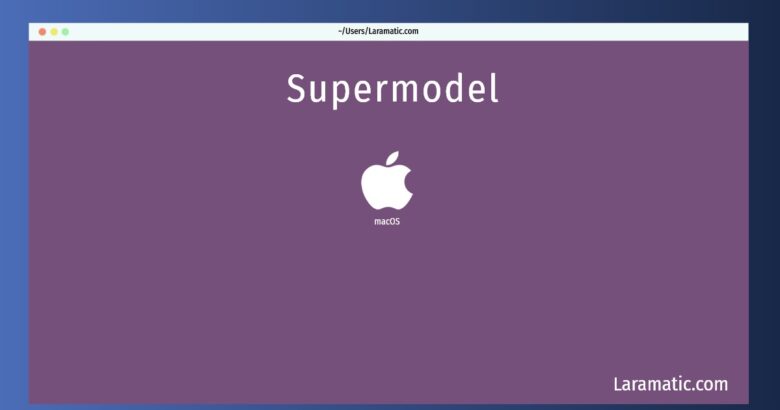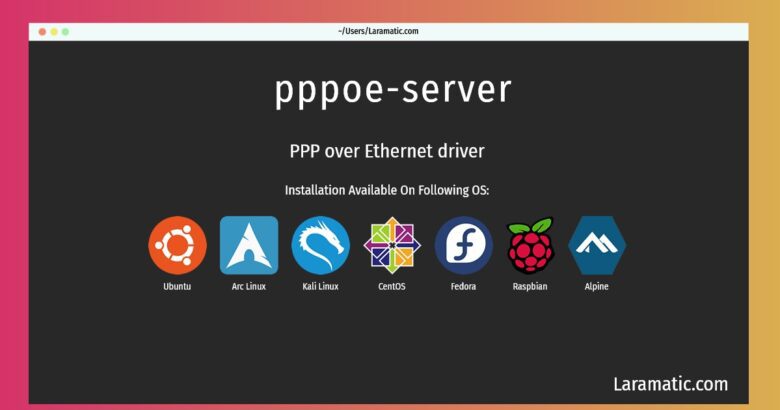How To Install Cl-launch In Debian, Ubuntu, Kali And Raspbian?
Install cl-launch
-
Debian
apt-get install cl-launchClick to copy -
Ubuntu
apt-get install cl-launchClick to copy -
Kali Linux
apt-get install cl-launchClick to copy -
Raspbian
apt-get install cl-launchClick to copy
cl-launch
uniform frontend to running Common Lisp code from the shellCL-Launch will allow you to invoke Common Lisp source code from the shell command line, from a shell script or as a Common Lisp script. It will also allow you to turn your Common Lisp source programs into standalone executables or executable shell scripts (optionally using a dumped image), depending on the features available in your underlying implementation. CL-Launch will automatically detect a supported Common Lisp implementation and use adequate invocation options. It can also be configured to fit exactly the programmer's desires. Fully supported implementations are: Allegro, CLISP, ClozureCL, CMUCL, ECL, MKCL, SBCL, SCL. Partially supported implementations are: LispWorks Professional, ABCL, GCL, XCL. Creating standalone executables is supported on: CLISP, ClozureCL, CMUCL, LispWorks, SBCL, SCL CL-Launch also offers Common Lisp programs a simple uniform interface to invocation parameters (command-line arguments and environment variables). It relies on ASDF 3 for system construction. See the ASDF 3 manual for more information on how to configure source and object code location. CL-Launch may dump memory images for fast startup (at the expense of disk space). It can also be used as a quick way to evaluate and print simple Lisp forms or scripts from the command-line without invoking a full-fledged REPL, and to easily compare results between implementations.

